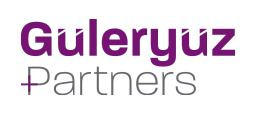Following the Constitutional Court’s (“TCC”) decision annulling the monetary limits for appeal in administrative jurisdiction, the TCC has annulled the regulation that no appeal can be filed against decisions on cases of tax and full remedy and actions of annulment of administrative acts, the subject matter of which does not exceed five thousand liras, as well as the regulation regarding the revaluation of monetary limits. The decision will enter into force on September 21, 2024, nine months after its publication in the Official Gazette.
Annulled Provisions
Turkish Code of Administrative Procedure - Article 45 – (Amended: 18/6/2014-6545/19 Art.)
Against the decisions of administrative and tax courts, even if a different legal remedy is stipulated in other laws, an appeal may be filed to the regional administrative court in the judicial circuit where the court is located, within thirty days from the notification of the decision. However, the decisions of the administrative and tax courts on tax and full remedy cases and annulment cases against administrative acts the value of which do not exceed five thousand Turkish Liras are final and cannot be appealed against.
Turkish Code of Administrative Procedure Additional Article 1 – (Additional: 5/4/1990-3622/26 Art.; Amended: 8/6/2000-4577/9 Art.):
The monetary thresholds determined in this Law shall be applied by increasing the monetary thresholds applied in the previous year by the revaluation rate determined and announced annually by the Ministry of Finance pursuant to the provisions of the repeated Article 298 of the Tax Procedure Law No. 213 for that year, with effect from the beginning of each calendar year. The parts of the limits determined in this way that do not exceed one thousand Turkish Liras shall not be taken into consideration.
Summary of the Application
2nd Tax Chamber of the Samsun Regional Administrative Court, within the scope of complaint regarding the cancellation of the payment order issued for non-payment of the court fee incurred in accordance with the court decision within the scope of file numbered E.2023/81, and Istanbul 13th Administrative Court, upon the complaint regarding the administrative fine imposed by the Social Security Institution within the scope of file numbered E.2023/114, concluded that the challenged regulations are contrary to the Turkish Constitution on the following grounds and applied to the TCC for the annulment of the relevant provisions;
- The monetary limits regarding the legal remedy, which are increased according to the revaluation rate every year, may change between the dates when the lawsuit is filed and the dispute is decided, and in this respect, the possibility of applying for appeal may disappear by the date of the decision.
- It is not clear in the rule whether the date of filing the lawsuit or the date of the judgement will be taken as the basis for determining the monetary limits for appeal.
- Considering that the courts may finalise the cases in different periods of time, the case that was filed on the same date but concluded earlier than the other case may be subject to appeal, and the case with a long judicial process may not be appealed as a result of revaluation of the limits.
- In light of the foregoing, the relevant provisions contradict the right of access to the court, the right to request the judgement to be reviewed, the principles of legal judge, legal certainty, predictability and equality.
Grounds for Annulment
The TCC stated that Article 45 of the Turkish Code of Administrative Procedure (“TCAP”), which is the first provision to be annulled, restricts the right to review the judgement for cases with a subject matter of less than five thousand Turkish Liras. Therefore, the TCC concluded that the relevant provision is contrary to Article 36 of the Constitution.
The TCC emphasised that the limitations imposed on fundamental rights and freedoms must be made by law, must be in accordance with the reason for limitation stipulated in the Constitution and must be proportionate pursuant to Article 13 of the Constitution, and concluded that the fact that the monetary limit for the determination of the decisions subject to appeal is revaluated every year and the date on which the monetary limit will be set is not clear, the limitation in Article 45 of the TCAP constitutes a violation of Article 13.
In conclusion, the TCC stated that the provisions of the law sought to be annulled are contrary to Articles 13 and 36 of the Constitution and decided to annul the relevant provisions.
The Decree shall enter into force nine months after its publication in the Official Gazette on December 21, 2023.
Conclusion
In the decision, the TCC addressed the request for annulment especially in the context of the "principle of legality" and concluded that even if a limitation can be imposed on the "right to request the review of the judgement", which is a fundamental right and freedom, this limitation must comply with the conditions set out in Article 13 of the Constitution, as stated above, otherwise it would be contrary to the Constitution, and concluded that the provisions subject to the request for annulment should be annulled on the grounds that they do not comply with the conditions for limiting the right.
In its recent decision numbered E. 2023/36, K. 2023/142, which is similar to the decision subject to this article, the Court annulled the regulation on the monetary limits for appeals before Council of State on the grounds that it contradicts with the "principle of control of the provision" by evaluating it in the context of the "principle of proportionality" and therefore it is unconstitutional (you may read our article on the matter here). In both decisions, the TCC emphasised that the "disproportionate" limitation of the right requires the annulment of the provision imposing the limitation and that the limitations to be imposed on fundamental rights and freedoms must comply with the conditions set out in the Constitution.
Since the decision cancelling the regulation on the monetary limits for appeal will enter into force as of July 13, 2024, it can be foreseen that the legislative body will make a new regulation until this date, which will eliminate the contradictions in terms of "proportionality" and "certainty" common to both decisions.
By Tarik Guleriuz, Partner, and Selin Nacar Ozturk, Associate, Guleryuz & Partners


